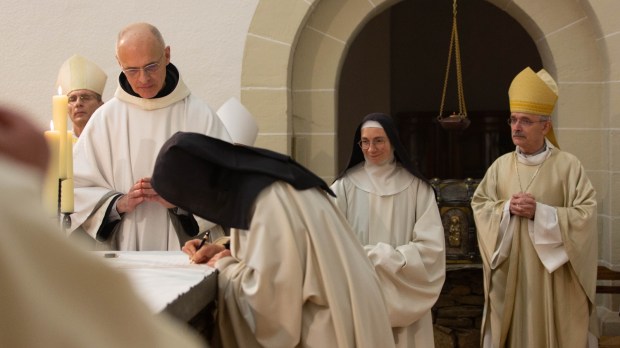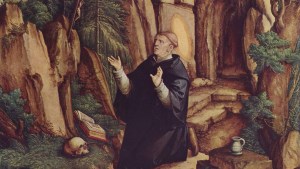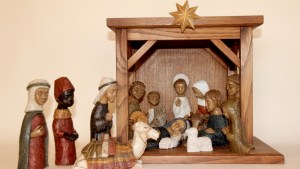On December 1, the first celebration of the liturgical feast of St. Charles de Foucauld, France witnessed an unexpected event: the founding Mass of the new monastery of St. Mary of the Snows, which was founded with a community of eight Cistercian French nuns.
In the midst of a highly secularized country, where 50% of the population say they do not believe in God, the whole church has rejoiced with the sisters on this long-awaited day.
Pope Francis himself was spiritually present, as manifested by a letter read at the Eucharistic celebration by the Norwegian Trappist Bishop Erik Varden, bringing more than one tear to the eyes of those present.
The celebration was presided over by the bishop of the local diocese, Viviers, located in the Rhône-Alpes region, in the department of Ardèche. Among those present was the Abbot General of the Cistercian Order, Fr. Mauro-Giuseppe Lepori, as well as numerous representatives of other religious families.
The eight sisters (aged between 31 and 73) succeed the Trappist friars who founded this monastery in 1850. They were forced to leave this immense monastery for lack of vocations. At the end, the community was composed of fewer than 10 monks, some of them elderly, who could not cope with the immense work involved in maintaining the large monastery. Today they have been distributed among different Trappist communities.
Monastic hospitality with Charles de Foucauld
In order to survive financially, starting in January the nuns of the new foundation will offer monastic hospitality to people who want to make a spiritual retreat, as well as to the thousands of hikers who walk the R.L. Stevenson Trail every year, tracing the steps of a journey that the British novelist of Treasure Island started here.
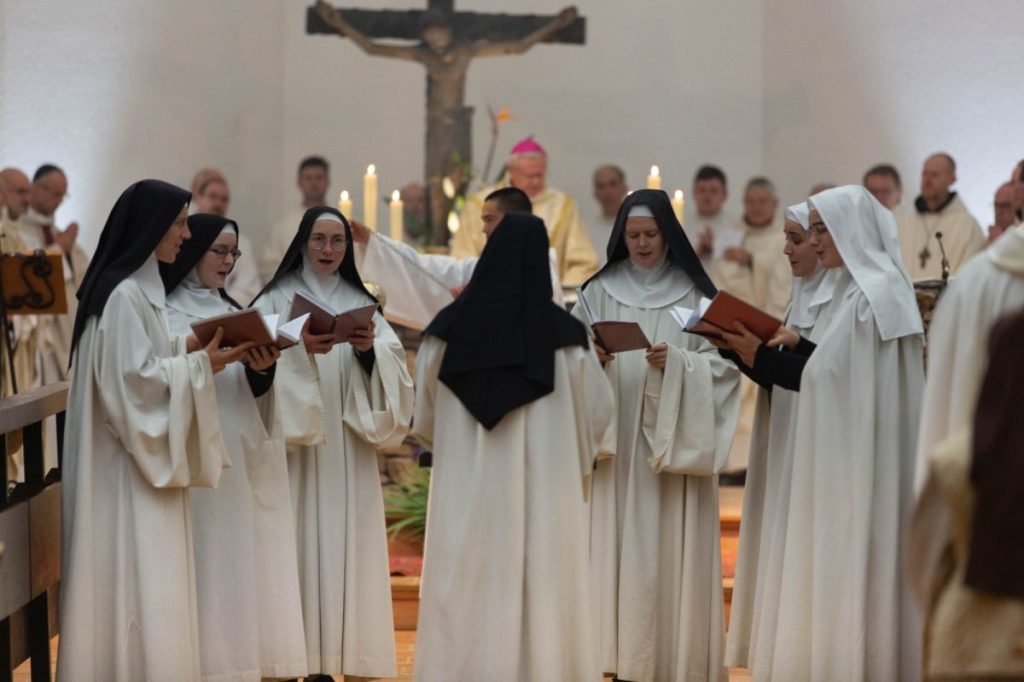
St. Charles de Foucauld (canonized on May 15, 2022) spent time as monk at this monastery before traveling to North Africa. There’s a chapel dedicated to him here containing some of his relics. A museum in his memory also makes it possible to discover the highlights of his spiritual heritage.
The surprising multiplication of nuns in Boulaur
The nuns come from the Cistercian abbey of Boulaur, located in the Occitania region, which for the past 40 years has been experiencing a true miracle: the surprising multiplication of its nuns.
To tell this story, we must begin with the death (due to meningitis) on January 22, 1975, of Claire de Castelbajac, a 21-year-old French lay woman who studied the restoration of works of art at the Central Institute of Restoration in Rome. After her death, her uncle, a Carmelite priest familiar with the extraordinary virtues Claire had shown in life, insisted that Claire’s mother write her daughter’s biography. When the resulting book was shared, it became clear that there was good reason to propose her as an example of holiness, seeking her eventual canonization.
Meanwhile, the future of the Boulaur monastery seemed uncertain. Although the sisters had been living in that abbey since 1949, there had never been more than five of them. Vocations were scarce and the community was aging. The future was extremely uncertain.
There was only one young novice, who entered in 1976 and was to take her final vows in 1981. But the abbot general was concerned. “How could I receive perpetual vows from this young woman when the community probably had no future?”
So, he had an idea. He summoned the five sisters to an special meeting and told them, “With the bishop, we are considering the possibility of opening the process of Claire’s cause for canonization, but we need a clear sign from heaven. So I ask you to pray and ask Claire for five new vocations for this year.”
“But Reverend Father,” replied the mother abbess, “five is impossible … Can’t we ask her for two?”
“No, I want a clear and obvious sign, so ask her for five!” insisted the abbot general.
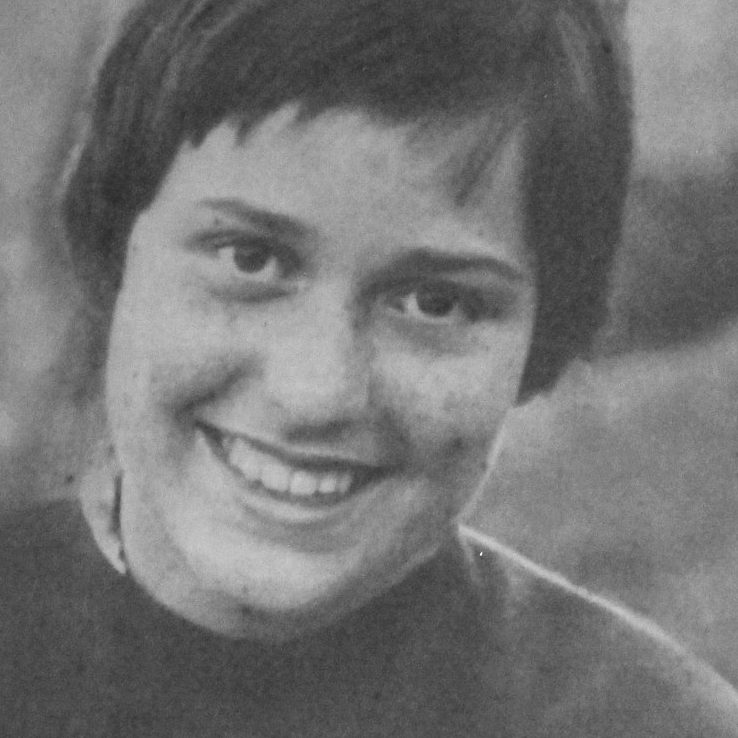
The miracle of Boulaur: Vocations
In 1981, five young girls asked to enter the monastery of Boulaur … and the first of them was named Claire! And the story does not end there, because the number of sisters has reached almost 40!
Since 1982, one or two young women enter Boulaur each year to live the Cistercian vocation centered on prayer, fraternal life, and working the land.
In 2004, at the request of the bishop and with the agreement of her mother (who moved to the abbey and later died there peacefully in 2005 at the age of 93), Claire’s body was transferred to Boulaur.
Today, many people come to Boulaur to pray and give testimony of the graces received through Claire’s intercession, testimonies that the sisters faithfully collect.
At the moment, the official recognition of a miracle by the pope is needed to accelerate the process of Claire’s beatification. But the nuns are not the least bit worried. For them, this miracle has already taken place: the multiplication of vocations at their monastery.
Meanwhile, the Boulaur monastery has nine novices. With the absence of the eight foundresses of St. Mary of the Snows, the house is now left with 31 nuns (between 25 and 94 years of age), who cultivate 110 acres of agricultural land where they take care of 9 cows (with whose milk they make cheese) and numerous pigs (with which they produce pâté), and where they produce many tons of jam a year. They have 26 rooms to offer monastic hospitality.
One of the nuns sums up the secret of their vocation with these words:
“Our monastic life, according to the Rule of St. Benedict, is summed up with ‘Ora et labora‘ (‘Pray and work,’ Ed.). Our days see a harmonious alternation of activities that allow us to nourish our soul in prayer and open our intelligence through study, while we keep our feet firmly on the ground through manual labor! Fraternal life flourishes in community moments such as recreation, chant rehearsals, work in common … but also in welcoming guests who are never lacking at the monastery.”
